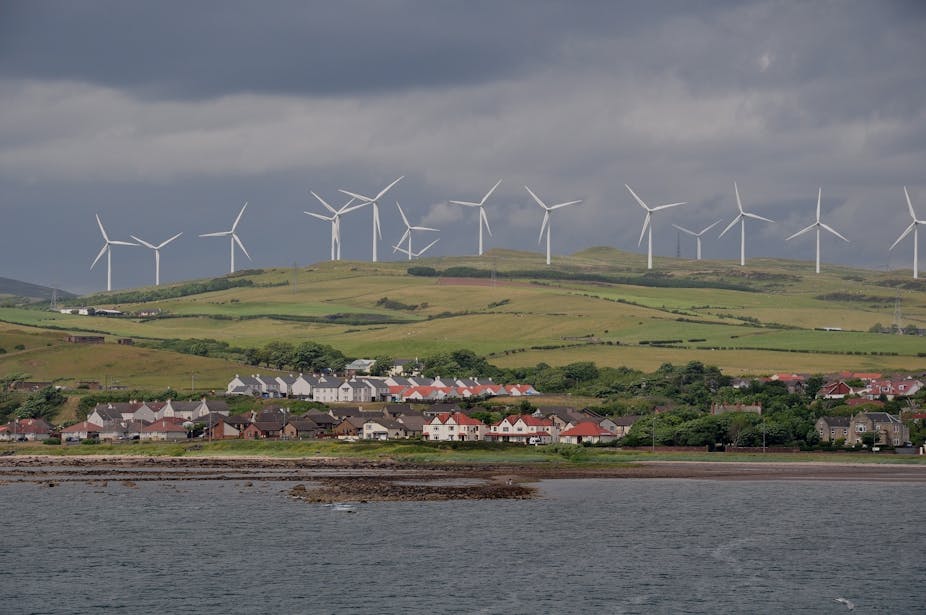Scotland might traditionally be known for its North Sea gas reserves but it also leads the way in renewable power. The current devolved Scottish government wants 100% of the nation’s electricity generation to come from renewables by 2020. But the wind industry that may power Scotland towards the target developed while part of the UK. How might renewables fare after independence?
The short answer is that, in the event of a Yes vote, renewable energy would go from strength to strength. The rest of the UK would have no choice other than to co-operate with Scotland on energy matters.
The negative attitude of the coalition government towards renewable energy has long been evident and also includes plans for a significant reduction in renewable energy subsidies. In the event of a No vote it is highly unlikely that the UK government would change its position and encourage investment in renewable power.
Wind energy is doing well, for instance. According to RenewableUK wind energy set new UK records during August 2014, surpassing the amount of energy generated by coal power in the UK on five different days that month and overtaking nuclear generation on one occasion.
The latest government polling put public support for renewable energy sources at a very high 79%. But despite this the UK government continues to support unsafe and costly new nuclear stations at the expense of wind, solar or tidal power. Its position could only worsen in the event of a No vote, and would represent a disaster for Scotland’s renewables ambitions.
Yes to renewables
A Yes vote, on the other hand, would surely place the future of renewable power in the hands of the Scots, who are committed to a future powered by wind and sea. The more optimistic reading of Scotland’s reserves, one that echoes the estimates of industry lobbyists Oil and Gas UK, would ensure energy security for Scotland. This would in turn provide revenue which could be invested in the further development of renewables.
The more pessimistic version, where Scotland’s oil and gas reserves are declining, means developing renewables becomes an even more important aspect of energy security.
The Scottish government’s own report Energy Regulation in an Independent Scotland declares the country should position itself as the best place to generate renewable power and it seems set to follow up this plan in the event of a Yes. Whichever way you look at its oil reserves, Scottish renewables would grow stronger under independence. Scotland has the wind, and it knows how to use it.
The renewables industry is clearly concerned about the effect of a Yes vote on subsidies currently regulated by UK bodies. However, Scotland can deal with regulatory uncertainty by relying on its clear long-term policy direction and the introduction of new subsidies that will focus on specific growth opportunities for renewables.
Hitting targets
Whatever the outcome of the referendum, the UK still has its climate change targets to meet – and wind energy from Scotland would help. As a result, it is highly likely that the rest of the UK would have no choice but to continue importing electricity from Scotland. This would place independent Scotland in a better position to negotiate an arrangement for an integrated energy market, in line with the stated policy goal of forming an effective energy partnership with the rest of the UK.
In summary, a Yes vote would definitely be the better choice for meeting the aspirations of renewable energy generation in Scotland and to ensure security of supply in the long term. The rest of the UK would have no choice but to co-operate with an independent Scotland under these circumstances to meet its climate change targets and to avoid blackouts.

